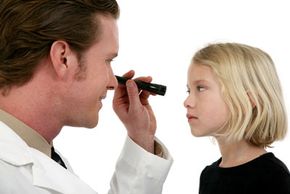Preventative care and services are measures that are performed in an effort to prevent an illness or injury. Common examples of preventative care are immunizations and yearly physicals. In fact, any screening test done in order to catch a disease early is considered a preventative service, such as routine Pap tests for women or prostate exams for men. Medications, like low-dose daily aspirin therapy, and counseling services, such as nutrition and exercise guidance, are also examples of preventative care and services.
In this article, we'll find out if these preventative steps actually make any difference in your health.
Advertisement
According to an August 2007 study by the Partnership for Preventative Care, preventative services are grossly underused, with racial and ethnic minorities receiving the least amount of preventative care in the United States. After studying the top 12 preventative care services, the authors concluded that if Americans began to utilize any five of them, up to 100,000 lives could be saved in just one year.
These lifesaving preventative measures are not expensive or particularly physically taxing. For example, the study estimates that less than half of adults in America use low-dose aspirin therapy. However, if 90 percent of all men over 40 and women over 50 took a daily low-dose aspirin, it could save up to 45,000 lives a year.
Similarly, more than 42,000 lives could be saved annually if doctors offered their smoking patients medications or counseling services in order to help them stop smoking. Today, doctors offer such medications or services to a mere 28 percent of patients after they have advised them to stop smoking. An additional 30,000 lives could be spared with the use of screening tests for breast and colorectal cancers, along with a simple flu shot. Currently, these screening tests and immunizations are underused, with less than 40 percent of all adults getting an annual flu shot.
Some may assume that preventative care is reserved for aging baby boomers. But the next section explains who can benefit from preventative care and exactly which services they should be utilizing.
Most Effective Preventative Services
1. Daily aspirin use for men over 40 and women over 50
2. Childhood immunizations
3. Smoking cessation advice and tools to help you quit
4. Hypertension screening and treatment for adults 18 and older
5. Cholesterol screening and treatment for men 35 and older and women 45 and older
Advertisement


